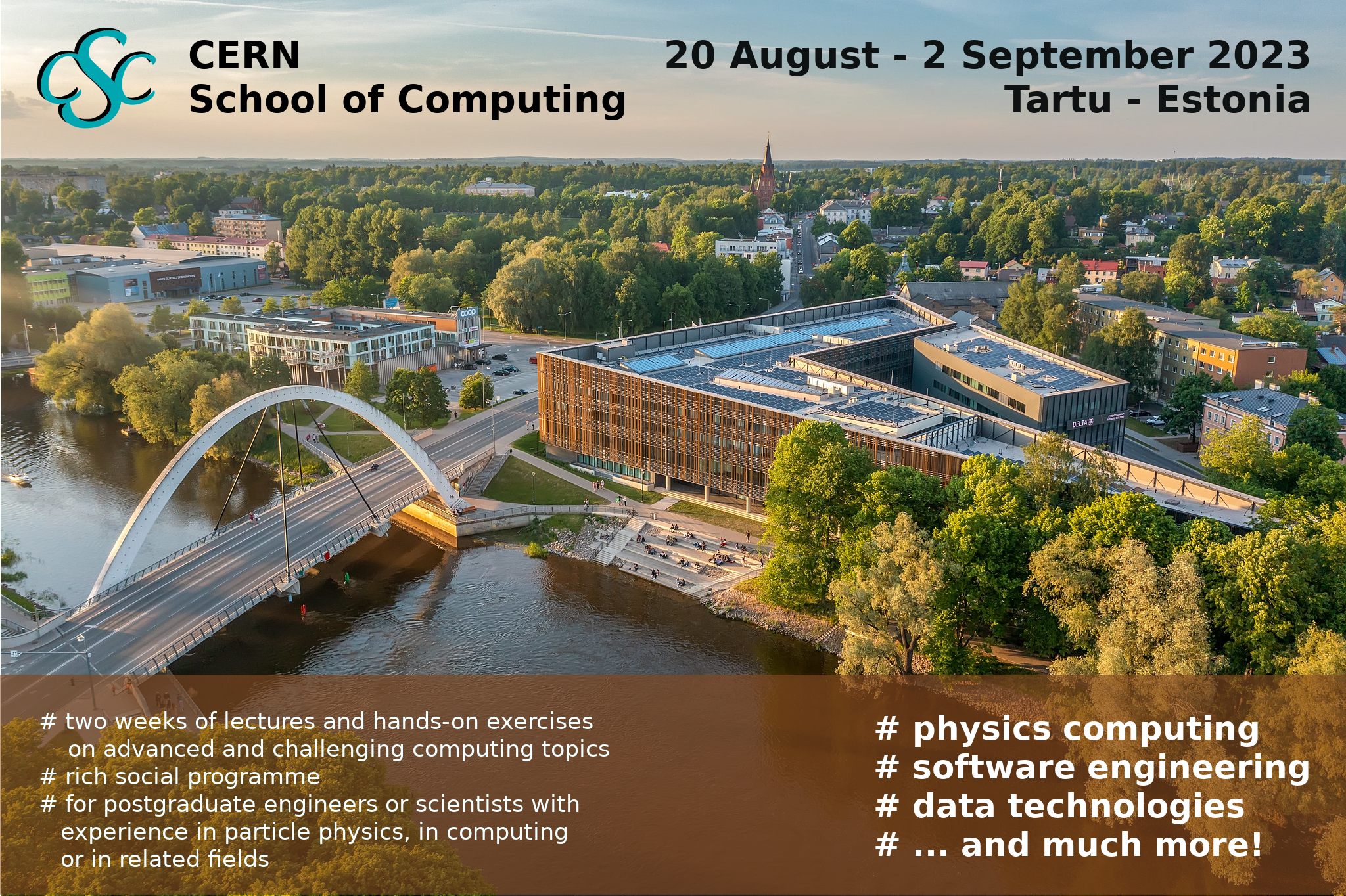CERN School of Computing 2023
Delta Centre - University of Tartu
Welcome to the 44th CERN School of Computing (CSC 2023)! The school will take place from 20 August until 2 September in the beautiful city of Tartu, Estonia.
This year’s School is organized in collaboration with University of Tartu
Academic Programme
The two-week programme consists of more than 50 hours of lectures and hands-on exercises, covering three main themes: physics computing, software engineering, and data technologies. Students who pass the final optional exam will receive a diploma from CSC, as well as ECTS credits from University of Tartu.
Other activities
However, it's not all study; the social and sport programme is also a vital part of the School. We will have ample opportunities to explore and experience some of the great cultural, historical and natural attractions of Tartu and its region.
The application for this event is closed.

Important dates
- Tuesday 21 March - applications open
- Tuesday 25 April (midnight UTC+2 / CEST) - deadline for applications
- Friday 12 May - invitations sent to the selected participants
- Friday 9 June- registration fee payment deadline
- Sunday 20 August (afternoon/evening) - student arrivals at Dorpat Hotel, Tartu
- Saturday 2 September (morning) - departure
Who can apply?
The School is aimed at postgraduate (ie. minimum of Bachelor degree or equivalent) students, engineers and scientists with a few years' experience in particle physics, in computing, or in related fields. We welcome applications from all countries and nationalities. Limited financial support may be available.


